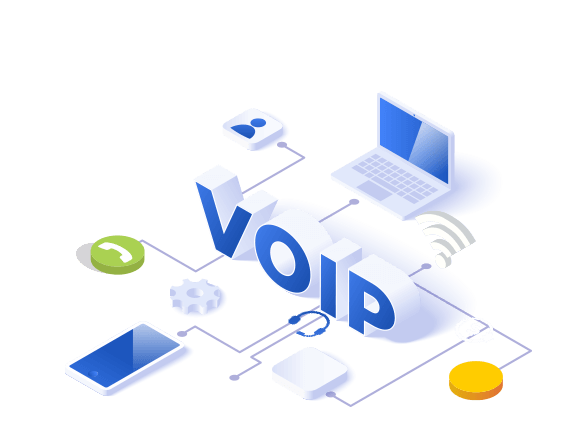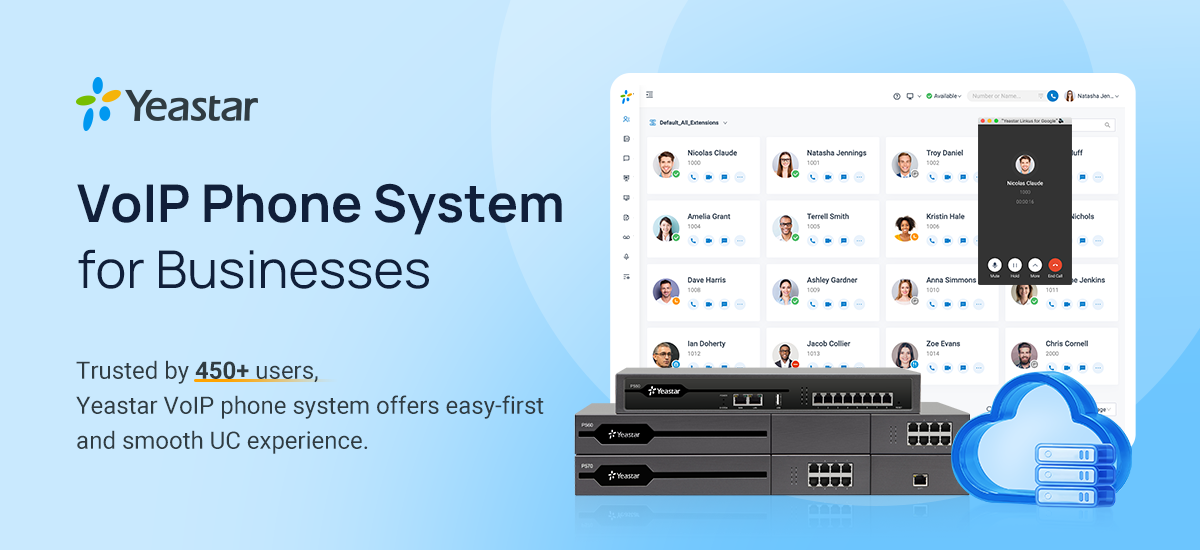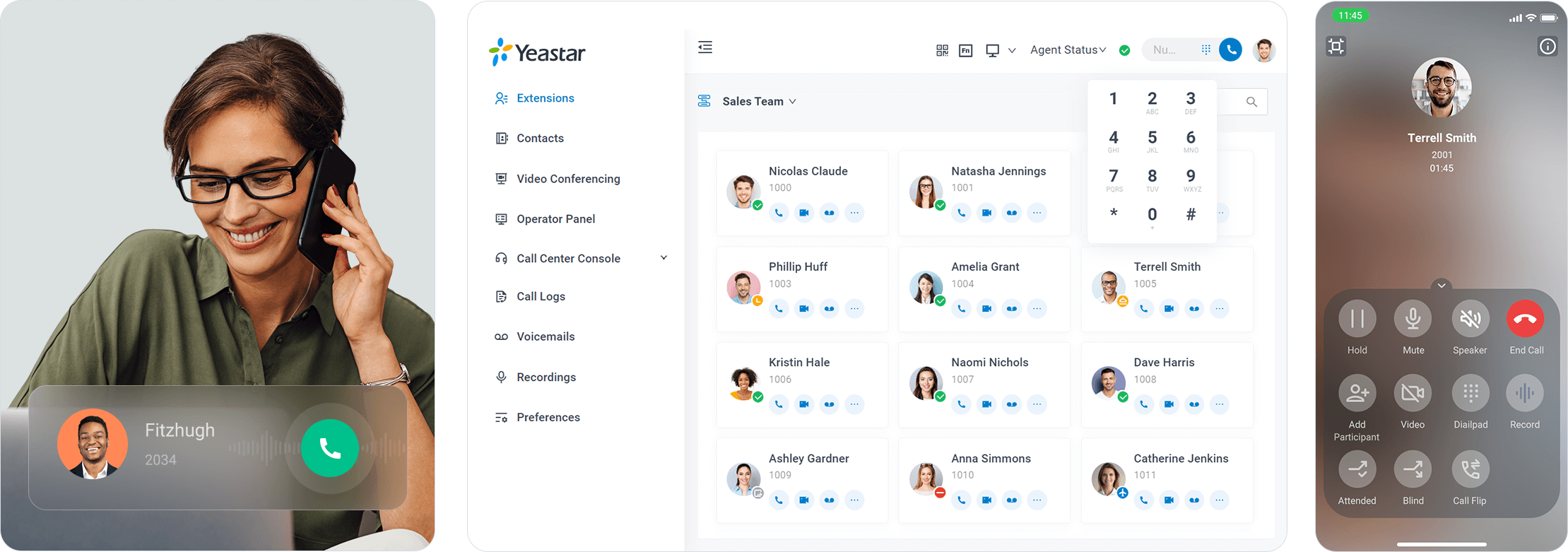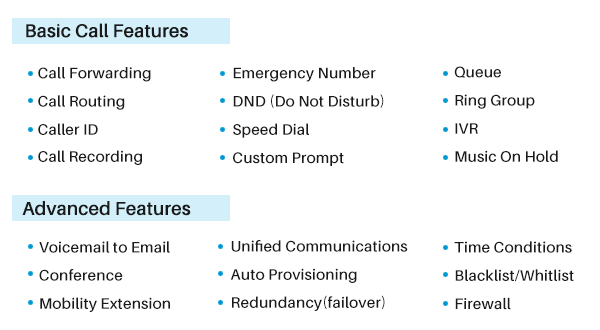
Have you ever received a phone call from a “VoIP Caller” and wondered what it meant? If so, don’t worry, you’re not alone. In most cases, receiving these calls poses no risks.
With the increasing popularity of VoIP technology, many individuals and entities are shifting from traditional telephony to IP phone systems. This transition means that more of your calls will be made and received through the Internet. For instance, WhatsApp calls are a common example of VoIP callers.
But what exactly does “VoIP caller” mean? How does it work in real business scenarios? In this post, we’ll address all your questions about VoIP callers and suggest the best VoIP phone system for your business needs. Keep reading if you’re interested.
Table of Contents
- What is a VoIP caller?→
- How many key terms are there about the VoIP caller?→
- Who use VoIP Caller?→
- Why do businesses use VoIP callers?→
- Why Yeastar VoIP phone system suit your business best?→
- Common FAQs about VoIP Callers→
What is a VoIP Caller?
Before introducing the concept of a VoIP Caller, let’s clarify what VoIP means.
VoIP, which stands for Voice over Internet Protocol, is a technology that enables the transmission of voice communication over the Internet or any IP-based network. Unlike traditional phone systems that rely on circuit-switched networks, VoIP converts analog voice signals into digital data packets and transfers them over an IP network.
In simple terms, a VoIP Caller refers to a person or entity that utilizes VoIP technology to make phone calls. However, it’s important to note that sometimes the term “VoIP Caller” can also directly refer to the VoIP Phone System itself.

Key Terms You Need to Know About VoIP Caller
VoIP Call
We have already explained how a VoIP phone system works. In simple terms, a VoIP call refers to phone calls made using VoIP technology.
If you have ever used WhatsApp to make a call, that is considered a VoIP call since it operates through an internet connection. These voice calls can be made and received using any compatible device. For example, this means you can use a softphone like Linkus, which is available as Web, Mobile, and Desktop Clients, as long as you have the correct phone number.

VoIP Caller ID
However, in most cases, you won’t be able to tell whether someone is making a VoIP call or using a traditional phone system. VoIP callers typically have a local phone number or use caller ID.
The functionality and purpose of VoIP Caller ID are quite similar to traditional Caller ID. It is an application that allows you to identify the caller on a VoIP call, displaying the caller’s name, just as it would on a traditional landline system.
With VoIP, users can enjoy more advanced features. For example, they can block specific phone numbers or organizations, similar to adding email addresses to a blacklist to prevent unwanted spam messages. These added capabilities enhance the user’s control over their incoming calls and provide additional security measures.
VoIP Phone Number
A “VoIP Phone Number” refers to a unique identifier assigned to a user or device for making and receiving calls over the internet using VoIP technology. There are two types of VoIP phone numbers: fixed and non-fixed.
-
Fixed VoIP Phone Number
A fixed VoIP phone number is associated with a physical location or address. It is typically linked to a specific device or location, such as a home or office. Fixed VoIP phone numbers are most commonly interconnected with the Public Switched Telephone Network (PSTN), similar to the network used by traditional phone numbers.
- Non-Fixed VoIP Phone Number
A non-fixed VoIP phone number, also known as a virtual phone number, is not tied to a specific physical address or location. These numbers can be used on any device connected to the internet, making them highly flexible and portable. Users can access non-fixed VoIP phone numbers through smartphones, computers, or web-based phones. This allows businesses to choose their own number and any desired area code, enabling them to use local numbers for their customers.
Who use VoIP Caller?
VoIP Caller has become mainstream in recent years and is used by both individuals and businesses. You have likely used VoIP calling technology without even realizing it. Have you made phone calls through platforms like Skype, FaceTime, or WhatsApp? If so, you have already used VoIP calling. Additionally, many people utilize it for cost-savings and flexibility when making long-distance or international calls.
In the business realm, both small and large enterprises rely on VoIP technology to meet their communication needs. Small and medium-sized enterprises (SMEs) appreciate the cost-effectiveness of VoIP compared to traditional telephone systems, as well as its scalability as their business grows. Large enterprises benefit from the integration capabilities of VoIP with other business applications, allowing for unified communication across multiple locations and departments.
Why do businesses use VoIP callers?
Businesses use VoIP callers for several reasons:
-
Cost Savings
Adopting VoIP callers allows businesses to reduce communication costs by leveraging internet-based calling, which often has lower call rates than traditional phone systems. This leads to significant savings, especially for long-distance or international calls.
-
Scalability and Flexibility
VoIP callers offer scalability and flexibility, making it easier to add new lines or extensions compared to traditional phone systems that require physical infrastructure changes. This is particularly beneficial for growing businesses or those with fluctuating call volumes.
-
Mobility and Remote Work
VoIP callers enable employees to make and receive calls from anywhere with an internet connection, supporting remote work and improving employee mobility. This ensures seamless communication and accessibility regardless of the employee’s location.
-
Integration with Other Systems
VoIP callers can integrate with CRM platforms, helpdesk software, and team collaboration tools, streamlining processes, eliminating manual data entry, and enhancing overall efficiency by synchronizing communication with other business operations.
-
Business Continuity
VoIP callers ensure business continuity in the event of unforeseen circumstances or disasters affecting the office premises. Calls can be easily rerouted to alternative locations, mobile devices, or virtual phone systems, minimizing disruptions and ensuring uninterrupted communication with customers and clients.
-
Breadth of Features
VoIP phone systems provide a unified communication platform encompassing various channels (internal and external). In addition to traditional phone features, VoIP offers additional capabilities such as Auto-attendant, video conferencing, and built-in call center capabilities. These features streamline workflows, improve productivity, and facilitate smooth collaboration within teams.

Why Yeastar VoIP Phone System for Your Business
The Yeastar VoIP Phone System is an IP-based business communication solution designed to meet the needs of companies of all sizes. It offers a comprehensive package for calls, video, messaging, and integrations right out of the box.
With inbuilt visual call management, integrated video conferencing, advanced contact center features, and ready-made integrations with platforms such as SMS, WhatsApp, Microsoft Teams, CRMs, and more, the P-Series Phone System enhances user experience at all levels. It provides seamless communication across desktop, mobile, and browser through easy-to-use applications.
Whether you prefer an on-premise or cloud PBX, the P-Series Phone System offers different editions to suit your requirements. It also provides a 30-day free trial to give you a real proof-of-concept experience. To learn more about the Yeastar P-Series Phone System, you can explore their website for detailed information and features.
Frequently Asked Questions about VoIP Caller
Is a VoIP caller spam?
While many people associate VoIP callers with spam calls, it is not always the case. Many legitimate businesses use VoIP software to contact their customers.
However, VoIP service providers also allow users to choose virtual numbers with different area codes. This is intended to help businesses strengthen their local presence but can be abused by scammers for untraceable purposes. Therefore, caution should be exercised when receiving calls requesting financial information or any personal data.
If an offer you receive sounds too good to be true, call back the company using their official phone number to verify the details. If you do not wish to receive any telemarketing calls, you can register your number on the “Do Not Call” registry.
How can I protect against VoIP scam calls?
To protect yourself against VoIP scam calls, you can take several precautions. First, exercise caution when sharing personal or financial information over the phone, especially with unknown callers. Consider using a reputable caller ID service or app to identify potential scam calls.
Implement call-blocking features provided by your VoIP service provider or third-party apps to prevent unwanted calls. Be skeptical of unsolicited offers or requests for payment and independently verify the legitimacy of the caller. Educate yourself about common scam tactics and stay updated on the latest fraud trends. Finally, report any scam calls to the appropriate authorities or regulatory bodies to help prevent others from falling victim to similar scams.
How do I Identify a VoIP Caller?
If you are unsure of who is calling or want to identify if the call is coming from a VoIP caller, you can use several methods to identify it. You can try:
- Look for labels like “VoIP” or “Internet Call” on your phone or Caller ID display.
- Check for unusual area codes or numbers that don’t correspond to a specific geographic location.
- Listen for any audio abnormalities during the call, such as delays, echo, or unnatural sound.
- Be cautious if the caller exhibits suspicious behavior, pressures you for personal information or payment, or presents too-good-to-be-true offers.
- Consider using call-blocking apps or services that can help identify and block potential scam calls, including those from VoIP sources.
Remember, scammers are constantly finding new ways to deceive people, so it’s important to stay vigilant and avoid sharing sensitive information unless you can independently verify the legitimacy of the caller.
How to block a specific VoIP number?
To block a specific VoIP number, first identify the VoIP service or device you are using. Check the settings or preferences of your VoIP service or device to see if it offers a built-in feature for call blocking. If available, add the specific number to the block list.
If your VoIP service or device doesn’t have this functionality, consider using a third-party call-blocking app or service. Alternatively, contact your VoIP service provider for assistance in blocking the specific number. Follow the specific instructions provided by your VoIP service, app, or provider to successfully block the unwanted VoIP number.


